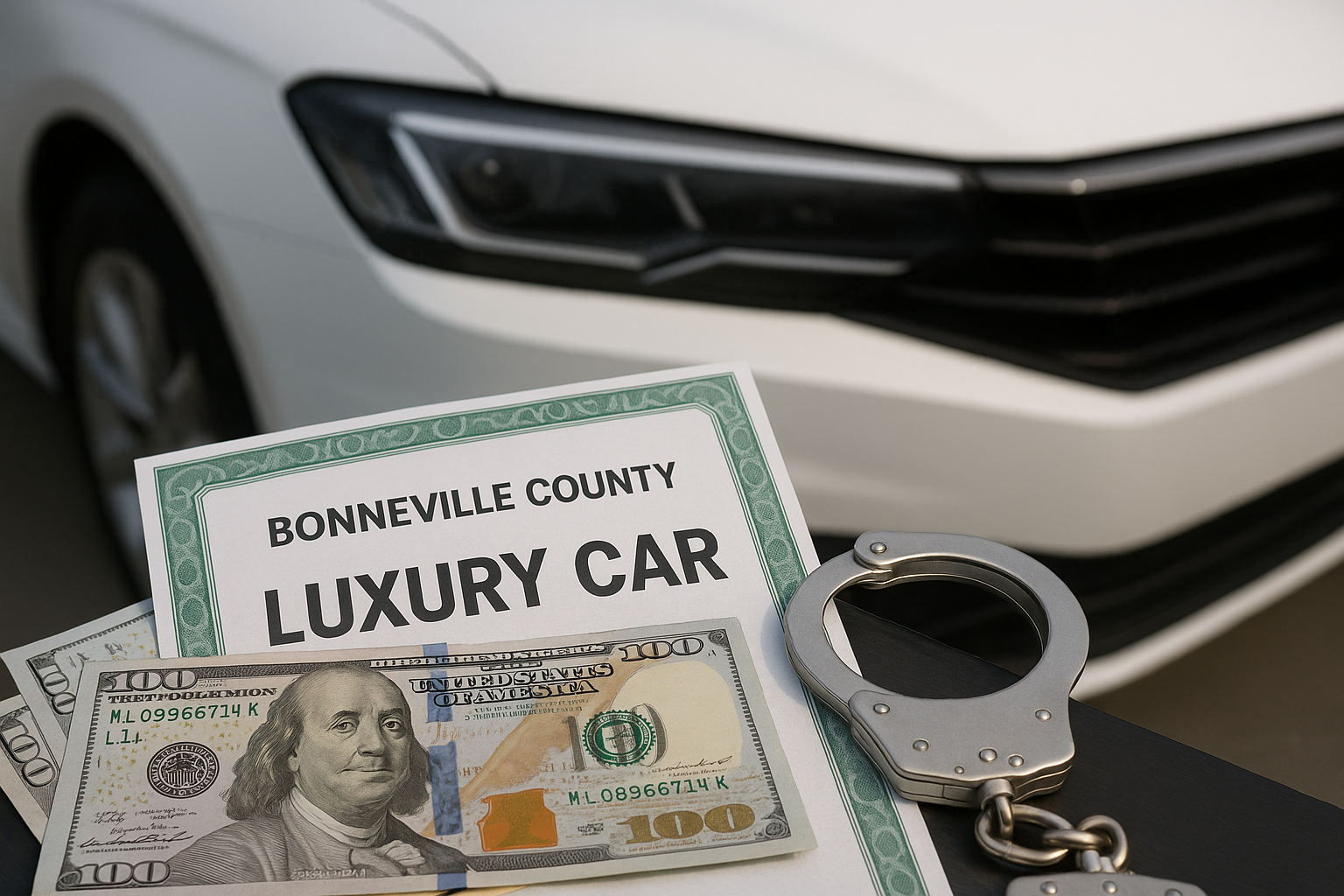
Miami has long been a hub for luxury cars, with its streets lined with sports cars, exotic imports, and high-end SUVs. Unfortunately, this reputation also makes the city a target for fraudulent schemes involving automobiles. Recently, a high-profile case involving car fraud in Miami has captured headlines, as a man accused of stealing nearly $385,000 through a vehicle scam now faces a fresh wave of criminal charges.
The case underscores not only the financial risks associated with fraudulent vehicle sales but also the vulnerabilities in the car financing system. It is a cautionary tale for both consumers and lenders in one of the nation’s busiest car markets.
The $385,000 Scheme
According to investigators, the accused man orchestrated a “credit bust out” scheme, a type of fraud in which luxury vehicles are purchased through false identities, fraudulent credit lines, or forged documents. The suspect allegedly acquired several high-value cars using fraudulent means, resold them quickly for profit, and left dealerships and financial institutions with the losses.
The scale of this car fraud in Miami is striking—authorities estimate the total losses at around $385,000, though the number could rise as additional victims come forward.
Fresh Charges Emerge
While initial charges centered on the first wave of fraudulent purchases, prosecutors now claim that the suspect engaged in a broader pattern of deception. The new charges suggest that the man targeted multiple dealerships and private sellers across Miami-Dade County, creating a trail of unpaid loans and missing vehicles.
Law enforcement officials say the case highlights how organized some fraudsters have become, often operating across state lines and leveraging sophisticated techniques to cover their tracks. In this instance, false IDs, stolen Social Security numbers, and forged financial records may have played a role.
The Impact on Victims
Car fraud in Miami does not only affect wealthy dealerships or banks. Everyday people can be caught in the crossfire. For instance, individuals who unknowingly purchase vehicles involved in fraudulent transactions may face repossession or lose the money they invested.
Dealerships also carry the burden. Fraudulent deals hurt not only their financial stability but also their reputation in a highly competitive market. Smaller dealerships, in particular, may lack the resources to recover from such large losses.
Why Miami Is a Hotspot for Car Fraud
Several factors make Miami a unique breeding ground for these types of crimes:
High Demand for Luxury Cars – Miami’s culture places a premium on luxury vehicles, making it an attractive market for fraudsters who can flip cars quickly.
International Connections – Stolen or fraudulently acquired vehicles can be shipped overseas, where tracking and recovery become nearly impossible.
Large Financial Ecosystem – With numerous banks, lenders, and dealerships competing for clients, fraudsters exploit gaps in verification systems.
Tourist and Transient Populations – The constant flow of new residents and temporary visitors can make fraudulent activities harder to trace.
Law Enforcement Response
Local and federal authorities are working together to curb car fraud in Miami. The Miami-Dade Police Department, in collaboration with federal agencies like the FBI, is using advanced tracking systems, digital forensics, and international cooperation to recover stolen assets and prosecute offenders.
In this case, officials say they are committed to holding the accused accountable and recovering losses where possible. However, experts caution that the complexity of car fraud often makes full restitution difficult.
Protecting Yourself from Car Fraud
The recent case highlights the importance of vigilance. Consumers and dealerships alike can take proactive steps to reduce their risks:
Verify Vehicle Histories: Always use services like Carfax or AutoCheck to confirm a car’s history.
Check Identification Thoroughly: Dealerships should implement robust ID verification systems to detect fraudulent buyers.
Secure Financing Carefully: Buyers should work with trusted lenders and confirm that loan terms are legitimate.
Be Wary of Deals Too Good to Be True: If a car is priced far below market value, it may be tied to fraudulent activity.
Monitor Credit Reports: Individuals should keep a close eye on their credit to detect identity theft linked to vehicle fraud.
Community Impact and Awareness
Cases of car fraud in Miami extend beyond individual victims—they also impact the community at large. High levels of fraud can increase insurance premiums, raise dealership prices, and damage Miami’s reputation as a safe and reliable car market.
Community awareness campaigns are vital. By educating both buyers and sellers about the risks, Miami can work toward reducing fraud-related losses and restoring confidence in its auto industry.
Looking Ahead
As the case moves through the courts, the spotlight remains on how Miami will respond to the broader issue of auto-related fraud. The accused faces potentially lengthy prison time if convicted, as well as restitution orders that could total hundreds of thousands of dollars.
Legal experts believe that this high-profile prosecution may deter future offenders and encourage dealerships to tighten their security measures. Still, as long as Miami remains a hub for luxury vehicles and global trade, the threat of car fraud will likely persist.
Conclusion
The unfolding case of car fraud in Miami involving $385,000 in luxury vehicles is more than just one man’s crime—it is a wake-up call for the city. It reveals vulnerabilities in the automotive market and underscores the need for stronger safeguards, smarter consumer practices, and more vigilant law enforcement.
For now, the accused awaits trial, and Miami waits to see how justice will be served. But one thing is clear: car fraud in Miami is an issue that affects everyone, from individual buyers to entire communities, and it requires collective action to fight back.